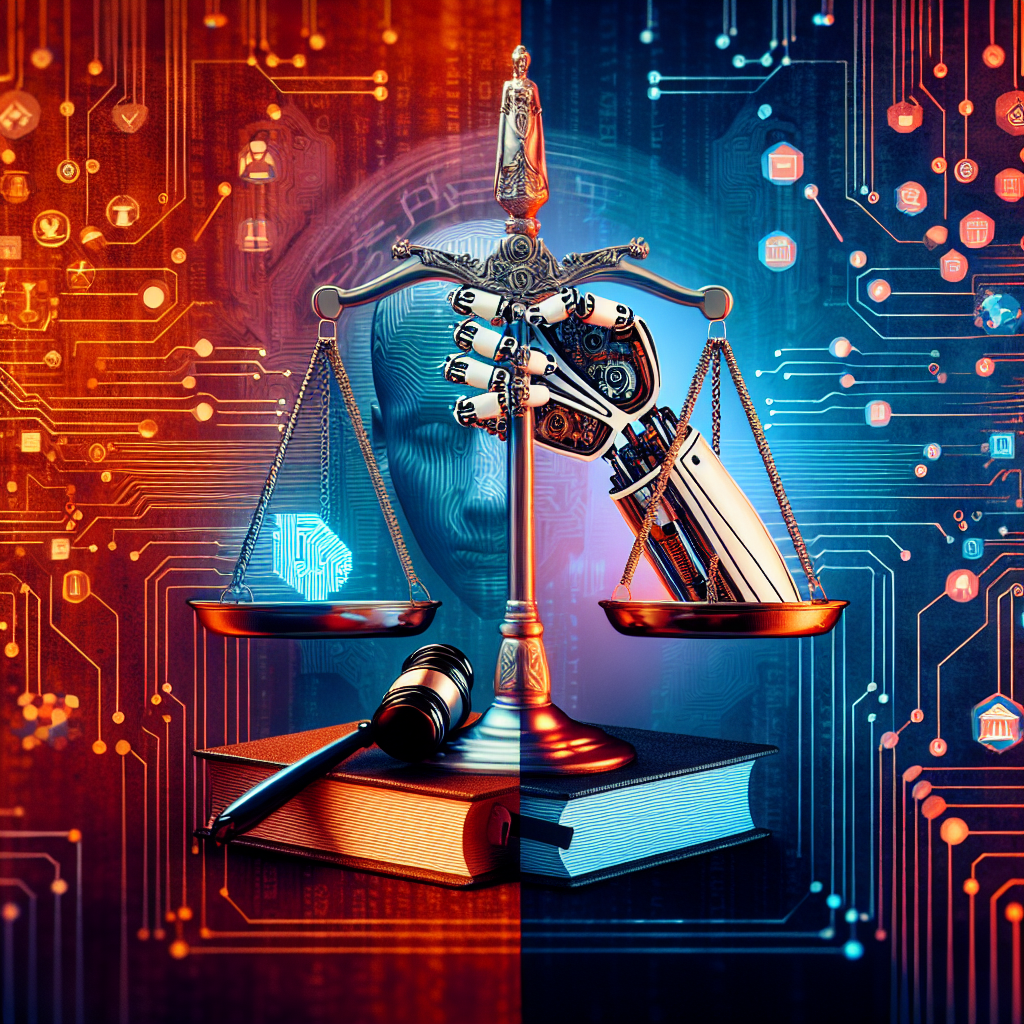Artificial Intelligence (AI) has become increasingly prevalent in various industries, including the legal system. While AI has the potential to improve efficiency and accuracy in legal processes, it also presents a number of ethical challenges that must be addressed. In this article, we will explore the ethical implications of AI in the legal system and discuss some of the key issues that need to be considered.
One of the primary ethical challenges of AI in the legal system is the potential for bias in decision-making. AI algorithms are trained on historical data, which may contain biases that are present in society. For example, if a model is trained on data that reflects systemic racism, it may perpetuate these biases in its decision-making process. This can lead to unfair outcomes for certain groups of people and undermine the principles of justice and equality.
Another ethical concern related to AI in the legal system is the lack of transparency in decision-making. AI algorithms are often complex and opaque, making it difficult for individuals to understand how decisions are reached. This lack of transparency can undermine trust in the legal system and raise concerns about accountability. If a decision made by an AI system is challenged, it may be difficult to explain or justify the reasoning behind it.
Additionally, the use of AI in the legal system raises questions about the role of human judgment and discretion. While AI can analyze vast amounts of data and identify patterns that may not be apparent to human judges, it lacks the ability to consider contextual factors and exercise discretion in the same way that a human can. This raises concerns about the potential dehumanization of the legal system and the loss of the human touch in decision-making processes.
Furthermore, the use of AI in the legal system raises concerns about the impact on the legal profession. AI has the potential to automate many routine legal tasks, such as contract review and document analysis, which could lead to job displacement for lawyers and legal professionals. This raises questions about the ethical implications of using technology to replace human workers and the potential social and economic consequences of this shift.
In order to address these ethical challenges, it is important for policymakers, legal professionals, and technologists to work together to develop guidelines and regulations for the responsible use of AI in the legal system. This may include establishing standards for transparency and accountability in AI decision-making, ensuring that AI systems are fair and unbiased, and providing mechanisms for human oversight and review of AI decisions.
In addition, efforts should be made to increase diversity and inclusion in the development and deployment of AI systems in the legal system. By involving a diverse range of voices and perspectives in the design and implementation of AI technologies, we can help to mitigate bias and ensure that AI systems are fair and equitable for all individuals.
Ultimately, the ethical challenges of AI in the legal system are complex and multifaceted, requiring careful consideration and thoughtful action. By addressing these challenges head-on and working together to develop ethical guidelines and best practices, we can harness the potential of AI to improve the efficiency and effectiveness of the legal system while upholding the principles of justice, fairness, and equality.
FAQs:
Q: How can bias in AI decision-making be mitigated in the legal system?
A: Bias in AI decision-making can be mitigated by ensuring that AI systems are trained on diverse and representative data sets, conducting regular audits and evaluations of AI systems to identify and address biases, and providing mechanisms for human oversight and review of AI decisions.
Q: What are some examples of AI applications in the legal system?
A: Some examples of AI applications in the legal system include predictive analytics for case outcomes, document review and analysis, contract management, and legal research.
Q: What are the potential benefits of using AI in the legal system?
A: The potential benefits of using AI in the legal system include improved efficiency and accuracy in legal processes, cost savings for legal firms and clients, and the ability to analyze vast amounts of data to identify patterns and insights that may not be apparent to human judges.
Q: How can the ethical challenges of AI in the legal system be addressed?
A: The ethical challenges of AI in the legal system can be addressed by developing guidelines and regulations for the responsible use of AI, increasing transparency and accountability in AI decision-making, promoting diversity and inclusion in the development and deployment of AI systems, and providing mechanisms for human oversight and review of AI decisions.

